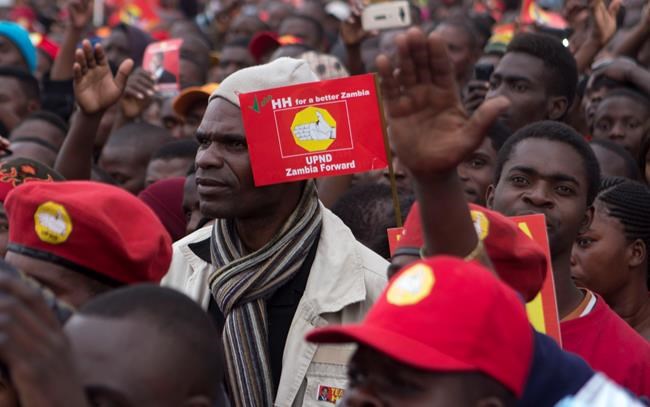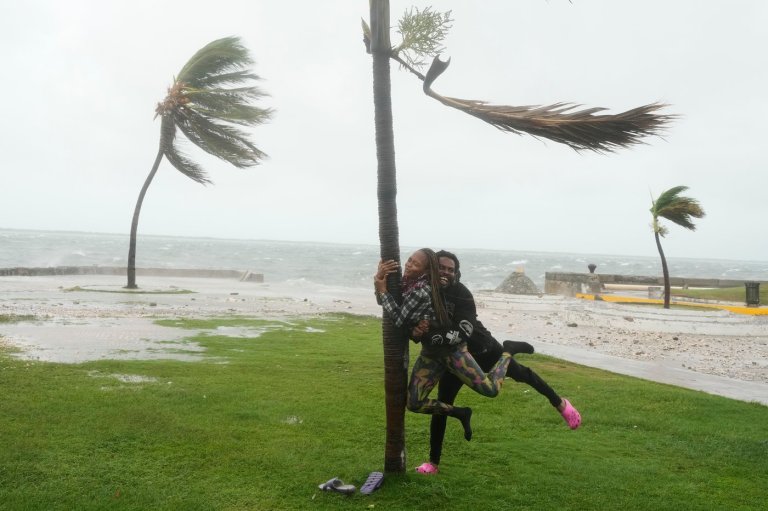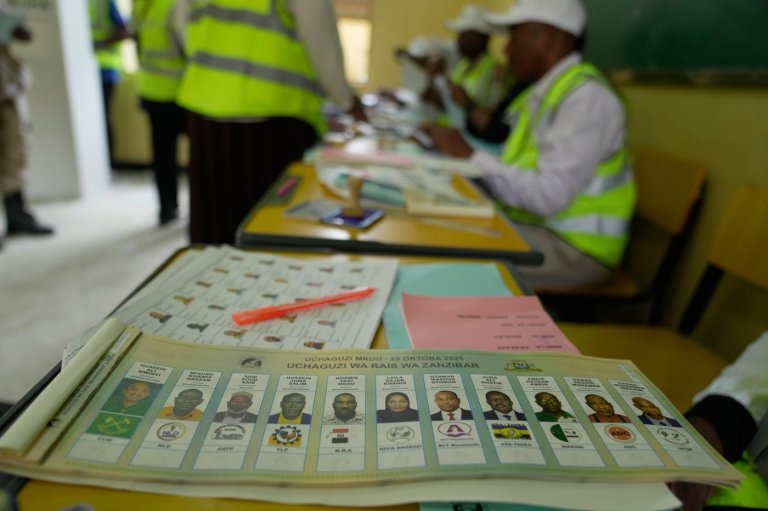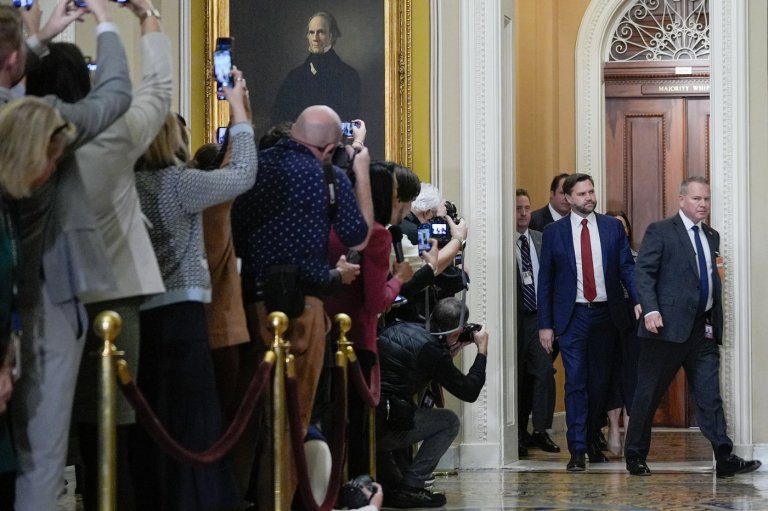Zambia voting for president amid unprecedented violence

LUSAKA, Zambia – Zambia is voting for president Thursday amid unprecedented political violence after years of peaceful power transitions that the U.S. last year praised as a “model for Africa.”
President Edgar Lungu, who has been in office for just a year and a half, faces businessman Hakainde Hichilema of the opposition United Party for National Development. Lungu took office in January 2015 after the death of President Michael Sata.
For the first time, a candidate must win more than 50 per cent of the vote or face a runoff election. Lungu and the ruling Patriotic Front party won last year’s election with 48 per cent of votes. Hichilema, who got 46 per cent in his fourth showing as a presidential candidate, called the vote a sham.
“I do not think that either of you will want to go on record as having been the two political parties who contributed to permanently denting Zambia’s record of peaceful elections,” the head of the electoral commission, Esau Chulu, said Tuesday, scolding the parties after another clash.
The commission suspended campaigns for 10 days last month in the capital, Lusaka, after a supporter of Hichilema’s party was shot dead amid a protest over police cancelling a political rally.
“Lungu has already stated he is prepared to forcibly put down any opposition supporters who contest the result,” a report by the London-based risk management group PGI Intelligence said Wednesday, noting that allegations of electoral fraud are already widespread.
In addition, international rights groups have expressed concern over the stifling of some local media. The government closed the country’s largest privately owned newspaper, The Post Newspaper, in June over unpaid taxes of about $6 million, but the paper’s owner said it was meant to silence him before the vote. The paper has been a vocal government critic.
Adding to the air of uncertainty, the constitutional Court this week ordered all cabinet ministers to vacate their offices, saying they should have done so when Parliament was dissolved in May to prepare for elections. The Law Association of Zambia had challenged the government’s decision to let the ministers stay. The court also ordered the ministers to pay back their salaries.
Zambia’s economic woes underlie it all. Lungu took office vowing that the country would “banish poverty in our midst,” but plunging prices for its main export, copper, have brought mines to close, leaving thousands unemployed. Economic growth has been roughly cut in half, and the country this year asked the International Monetary Fund for help.
Another source of worry is drought in many areas of southern Africa, including Zambia, which the U.N. has called the worst in 35 years.
Join the Conversation!
Want to share your thoughts, add context, or connect with others in your community?
You must be logged in to post a comment.
















